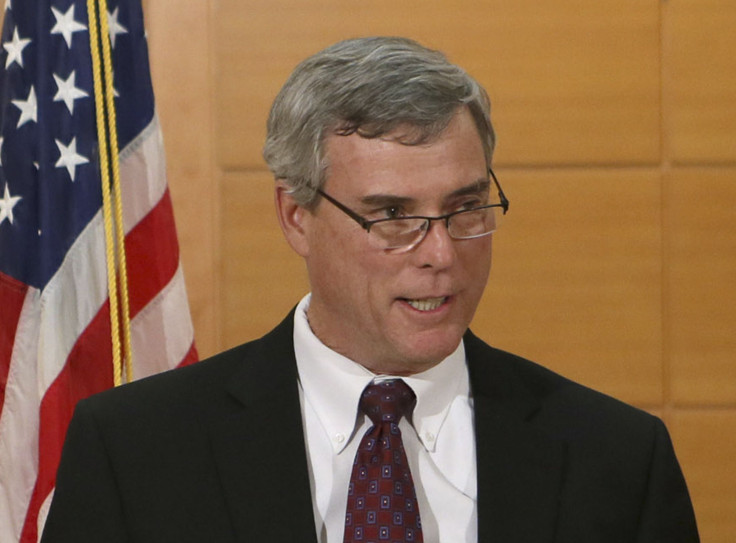Ferguson Grand Jury Decision: Why Was The Darren Wilson Verdict Announced At Night?

St. Louis County Prosecutor Bob McCulloch’s late-night unveiling of the grand jury decision in the Michael Brown fatal shooting has drawn criticism from legal experts who said the timing was to blame for the chaos that immediately erupted in Ferguson, Missouri, including the torching of two police cars and looting. McCulloch, whose controversial handling of the Darren Wilson case has been heavily scrutinized in recent months, held an 8 p.m. news conference Monday to announce Ferguson police officer Darren Wilson was not being indicted.
McCulloch only had to look to previous rowdy protests in the days shortly after Brown was shot and killed in August to know that a daytime grand jury announcement was a better option, according to Jody David Armour, a professor at the University of Southern California Law School in Los Angeles. During the day, protests in and around Ferguson were peaceful, with more unruly activity happening at night.
Only McCulloch knows why the go-ahead was given for the 8 p.m. grand jury announcement -- authorities have yet to explain the rationale behind it. But Armour speculated that the St. Louis County prosecutor in part had his own self interests in mind.
“This was more about stagecraft, building drama, building suspense so that he can grandstand. He can bask in kind of the public eye and the media attention and be the focal point in a way that you can’t perhaps at other times in the day,” Armour said. “It was abundantly foreseeable that there would be, could be more trouble at night and those additional risks were deemed worth it for whatever other interests he was serving in having a late announcement.”
Another reason may have been that government officials intentionally wanted to make protesters appear less sympathetic by using the cover of darkness, critics said. “They’ll look more menacing at night,” Armour said. “There’s more fear naturally that everyone feels when it’s dark and you’re groping around in the dark. It seems that if you wanted to construct a scenario to cast the protesters in the worst possible light, you would do what Bob McCulloch did in this case.”
Jens David Ohlin, a professor at Cornell Law School in New York, was among the many critics surrounding the timing of the decision. He said the 8 p.m. grand jury announcement may have been done to prevent protesters from organizing and to ensure most people were off the streets, but the timing was still ill-advised.
“There seemed to be an unstated public safety rationale,” he said. “It was a poor decision even on those grounds.” Ohlin said he would have made the announcement very early in the morning, when protesters would be lacking energy.
Paul Millus, an attorney of counsel to the New York Law firm of Meyer, Suozzi, English & Klein, said he saw no benefit to the nighttime announcement. He said the violence, which included the looting of a number of stores and fires set to two police cars, could have been avoided with a daytime news conference.
“Clearly the better part of valor would have been to have it at 9 o’clock in the morning,” he said. “There is no logical reason behind it.”
Even worse, according to Millus, was the lack of police presence on the main drags of Ferguson that contributed to the looting of businesses. He said letting the crowd vent empowered the protesters and gave them confidence that they can cause mayhem again on Tuesday night.
“It sets up this evening as a very bad disruption,” he said. “They better be ready in Ferguson because this isn’t a one night deal.”
© Copyright IBTimes 2024. All rights reserved.






















